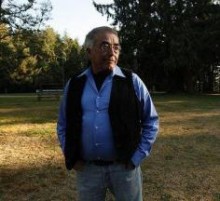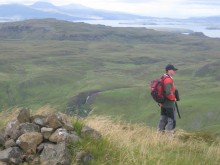 I found this great biography of a special Native American, Don Coyhis.
I found this great biography of a special Native American, Don Coyhis.
‘Founder, White Bison, Purpose Prize Winner 2009. Coyhis developed Wellbriety, a substance abuse recovery program that taps the power of Native American culture, tradition, and community to help heal his people.
Don Coyhis felt emptiness in sobriety. He found himself going through the motions at support group meetings, disconnected from the reasons why he shouldn’t drink.
Searching for understanding, he turned to his Native American roots. During a five-day fast in the Colorado mountains, Coyhis saw a white bison rise from the ground – to him, a sign that his recovery would be incomplete without his culture. Coyhis founded a nonprofit offering native-focused recovery resources to communities across the country, and in turn, launched a movement called Wellbriety.










 I’m almost nine months into my recovery journey, during which time I have not had a drop of alcohol. I’ve been reflecting back to my past, the time that I was drinking very heavily. Today, I can’t imagine drinking every day as I did, waking up with a hangover every morning. My mind just can’t seem to go back there.
I’m almost nine months into my recovery journey, during which time I have not had a drop of alcohol. I’ve been reflecting back to my past, the time that I was drinking very heavily. Today, I can’t imagine drinking every day as I did, waking up with a hangover every morning. My mind just can’t seem to go back there.

